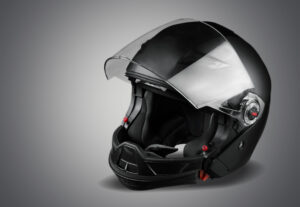
Motorcycle helmets reduce your risk of a head injury by up to 69%. They reduce an operator’s risk of death by up to 37% and a passenger’s fatality risk by up to 41%. It makes sense for a cautious rider to wear a motorcycle helmet. However, Indiana helmet laws only mandate protective headgear for riders under 18.
After a motorcycle accident in Indianapolis, IN, your helmet use could determine the injuries you suffer and the compensation you can seek for them. An Indianapolis motorcycle accident lawyer from Rob King & Associates, Trial Lawyers can stand up to careless drivers and their insurers for fair compensation for your head injury. Contact us today at (317) 916-0000 for a free consultation.
How Rob King & Associates, Trial Lawyers Can Help After a Motorcycle Crash in Indianapolis, Indiana

Our experienced Indianapolis motorcycle accident attorneys at Rob King & Associates, Trial Lawyers have over 40 years of combined legal experience representing clients in Indianapolis, Indiana, against those responsible for their injuries. We’ve recovered millions of dollars for our deserving clients and we’ll work just as hard for you.
We provide the following legal assistance when you suffer an injury due to someone else’s culpable conduct:
- Evaluate your case and legal options
- Prepare and file an insurance claim using the evidence we uncover
- Negotiate with the insurer to settle your claim
- Battle insurers in court if they refuse to resolve your case
A motorcycle accident can leave you with serious injuries or even permanent disabilities due to the lack of a protective compartment. Contact our law offices today in Indianapolis, Indiana, to schedule a free case review.
Indiana’s Motorcycle Helmet Law
States started passing motorcycle helmet laws in response to the National Highway Safety Act of 1966. This law allowed the U.S. Department of Transportation to withhold federal highway funds from states that failed to pass certain safety laws. One of those laws was a universal motorcycle helmet law that required all riders, regardless of age, to wear a helmet.
Indiana passed a universal helmet law as required by the federal government. However, Congress withdrew the Transportation Department’s authority to withhold highway funds in 1975, and many states, including Indiana, rolled back their helmet laws.
Indiana’s universal helmet law was repealed in 1979 and replaced with a partial helmet law. Under the current statute, only riders 17 and younger must wear a motorcycle helmet. Older riders can ride helmetless without violating the law.
Partial laws are difficult to enforce. The police often cannot tell a rider’s age from a distance. Since riding without a helmet is legal for most riders, officers will not usually waste their time stopping riders unless they clearly violate the law. For example, an officer might stop an operator with a helmetless child passenger.
A citation for riding without a helmet is a Class C infraction. The penalty for this infraction is a fine of up to $500. However, if the offender pleads guilty or no contest, the court can only assess court costs plus a fee of $35.50 in most cases.
How Helmet Use Affects Your Injury Claim
Crashing without a helmet can result in head trauma and even a traumatic brain injury. When your head strikes something, your brain shifts inside your skull. The tissues can tear as the brain moves. If your brain strikes the inside of your skull, it can develop a contusion.
A helmet absorbs some of the impact. Rather than suffering a contusion or subdural hematoma, you might only suffer a concussion. Hopefully, your helmet will take the full impact, and you will escape any head injury.
If you fail to wear a helmet, the at-fault driver can try to shift at least some blame to you for your injuries. Under Indiana’s comparative negligence doctrine, everyone who contributed to the cause of an accident, including the victim, receives a percentage of the blame. A court or insurer can reduce (or even eliminate altogether, depending on the facts) the victim’s compensation according to their share of the fault.
For example, suppose that you failed to wear a helmet and suffered a head injury when you were hit by a distracted driver. The driver may bear the bulk of the blame, but a jury or claims adjuster could also assign partial blame to you. If you bear 15% of the blame for your head injury, for example, you can only recover compensation for 85% of your losses.
Contact Our Indianapolis Motorcycle Accident Attorneys Today
A head injury from a motorcycle accident can produce physical, mental, and emotional symptoms. Contact Rob King & Associates, Trial Lawyers to schedule a free consultation to discuss your accident and the compensation we can seek under Indiana law. A personal injury lawyer in Indianapolis, IN, at our law firm will work on contingency, so we only receive attorney’s fees if we win compensation for you.

